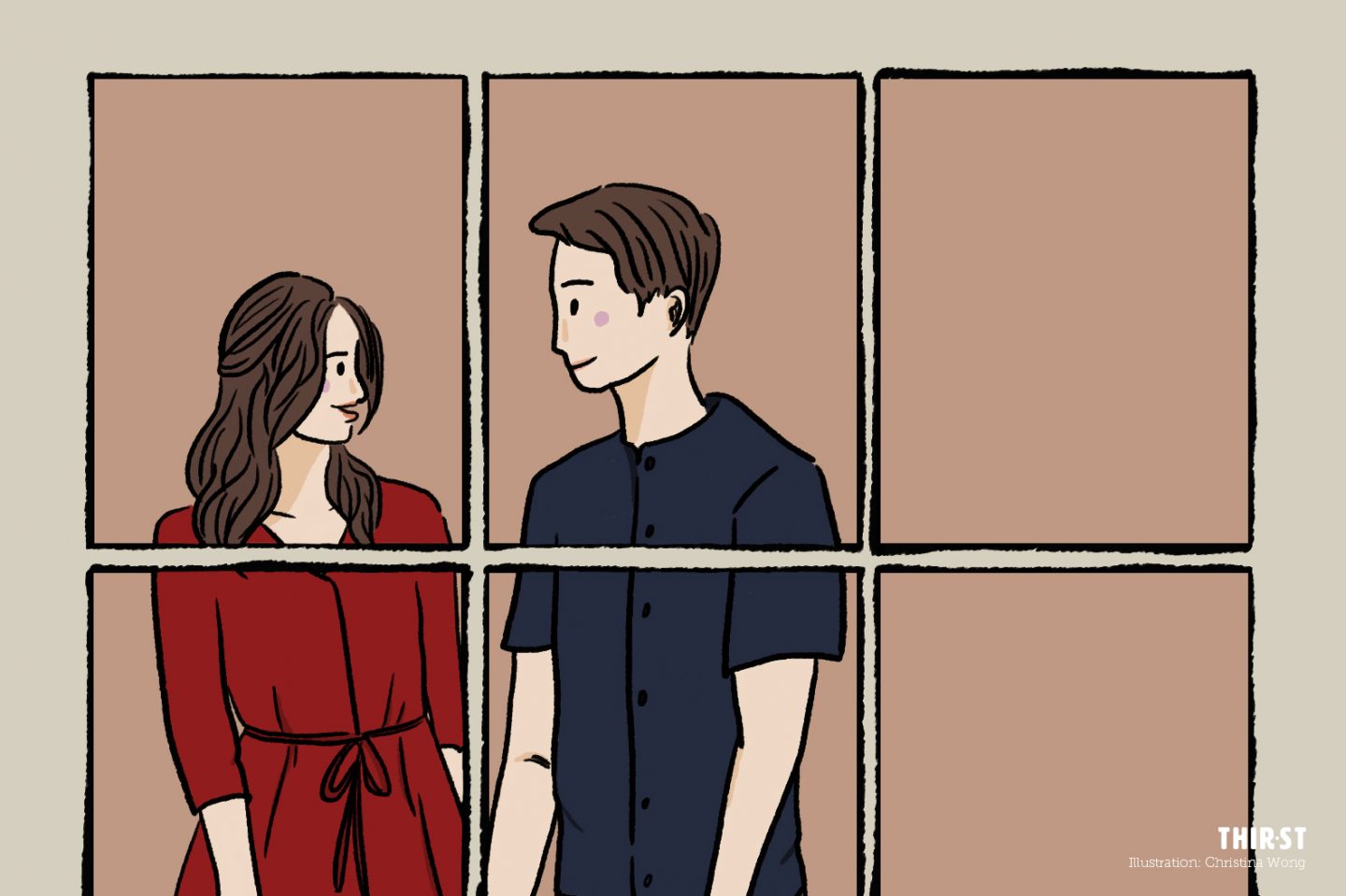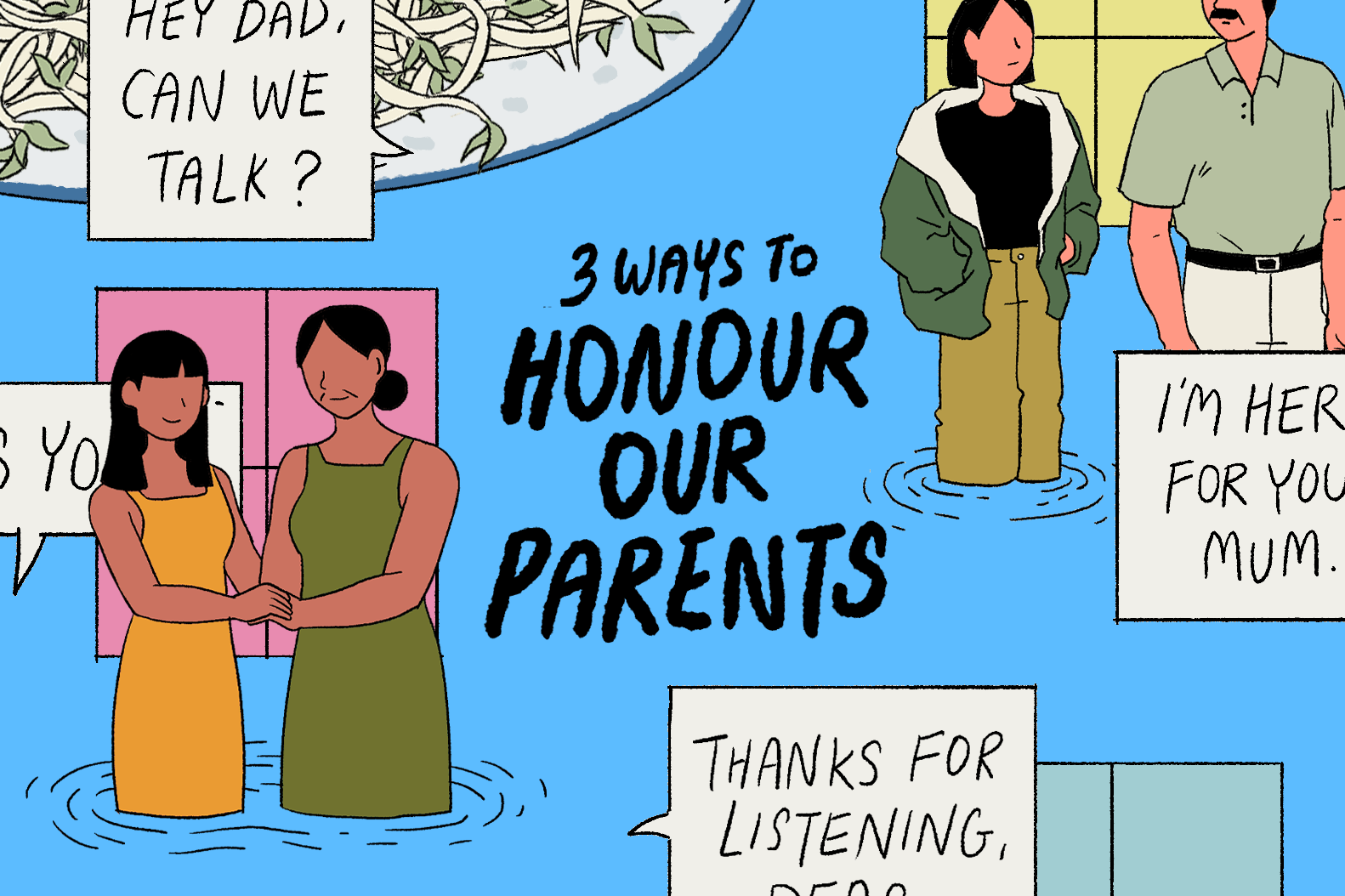“You should move in with him before there’s no way out!”
My recently engaged friend shared with me that her colleagues were encouraging her to cohabitate with her boyfriend. Their logic was so that she would know what living together would be like before getting married. That same week, another friend of mine told me about her friend who had recently moved in with her fiancé.
Cohabitation is not a foreign concept to many of us millennials. To my peers, cohabitation seems to have become a viable option especially with increased earning power to finance a home.
When we asked on Insta Story what some reasons unmarried couples would move in together are, most answers revolved around considerations of compatibility and practicality.

Many felt that cohabitation would reveal if both parties’ living habits are compatible – a good test to see if they were right for each other. Others pointed out that convenience and saving money were push factors for them – especially if they are studying abroad or if the partner is a foreigner working in Singapore.
As an attached, young working adult, living together before marriage has never crossed my mind simply because I don’t have the money to move out and into a separate home with my boyfriend.
But what if I had the money to? What if circumstances seemed to compel me to move in with him?
THE TEST OF COMPATIBILITY
A friend once told me that if he were in his parents’ shoes, he would have filed for a divorce long ago: “I don’t know why they even got married in the first place if all they do is fight!”
With global divorce rates rising as high as 44%, and “incompatibility” flagged as the main reason for separation, there’s little wonder that couples want to “test” each other out before getting legally married. It’s kind of like a 30-day free trial before you have to pay and keep the product.
Although the motivation seems understandable, cohabitation may not be the answer according to psychologists Scott Stanley and Galena Rhoades. A person and his partner may have very different purposes for moving in together.
But what if I had the money to? What if circumstances seemed to compel me to move in with him?
Reasons like “a courtship phase, an economical way to save on rent, a venue for convenient sex, a prelude to getting serious, or an alternative to marriage” are cited by young adults as push factors for cohabitation. And according to that study, females tend to view cohabitation as a step towards marriage while males are less committed in that sense.
With a discrepancy in end goals and no shared future in mind, cohabiting couples are actually more likely to separate than their peers. Furthermore, Stanley and Rhoades write that cohabiting couples have a tendency to “slide” into marriage – just like how they “slide” into cohabitation – just because it seems like the next logical step to take in the relationship.
Without clear expectations and real commitment to each another, couples are more likely to separate than those who vow to make the marriage work even when it’s inconvenient or messy.

THE COST OF CONVENIENCE
While moving in together may seem practical initially, researchers warn that there’s more than just financial cost to count. They call this, “consumer lock-in”, which is what happens when we are so invested in a product or service (a relationship in this case) that tapping out will incur a higher cost than remaining in the status quo.
So things like signing a lease, sharing a house or owning a pet may seem innocuous but they all add up. And by the time you realise this person is actually not who you want to live with for the rest of your life, you may also find you’re ironically already “locked in” by all these factors.
Many of us probably want to live with our partner before getting married because of certain considerations. But at the end of the day, cohabitation isn’t going to be the answer to solve financial constraints or mitigate disappointment in relationships.
This might sound cheesy, but that answer is God.
There is a story in the Bible about a woman who was cohabiting with a man (John 4:1-30).
Because of her race and immorality, she was shunned by people. So she evaded them in turn. This woman would even head to the well at the hottest time of the day to fetch water, just to avoid meeting people.
One day at the well, she met Jesus. They had a fascinating conversation. And when Jesus offered her water that would quench her thirst for good – the woman immediately jumped at it so that she would never have to come to this well again.
The woman said, “Sir, give me this water so I won’t ever get thirsty, won’t ever have to come back to this well again!” He said, “Go call your husband and then come back.” “I have no husband,” she said. “That’s nicely put: ‘I have no husband.’ You’ve had five husbands, and the man you’re living with now isn’t even your husband. You spoke the truth there, sure enough.” (John 4:15-18, MSG)
The woman must have had her reasons for having five husbands. She must have had her reasons for living together with her current partner. And just like her, we probably have our “reasons”.
We make certain decisions about our living conditions because of factors like wanting to avoid being disappointment in marriage or having growing up as a child of divorce.
So we look at cohabitation as a quick fix answer – but it cannot solve the problems at their roots. Though well water can’t fully satisfy us, there is a better way: There is a fountain of spring water available to all of us.
“Jesus said to her, “Everyone who drinks of this water will be thirsty again, but whoever drinks of the water that I will give him will never be thirsty again. The water that I will give him will become in him a spring of water welling up to eternal life.”” (John 4:13-14)
If you are thirsty, then come. Come and drink from the living water (Revelation 22:17). Come into His presence where streams of living water flow.
And if you’ve already received from the wellspring of life then the call is clear: Go and sin no more.










